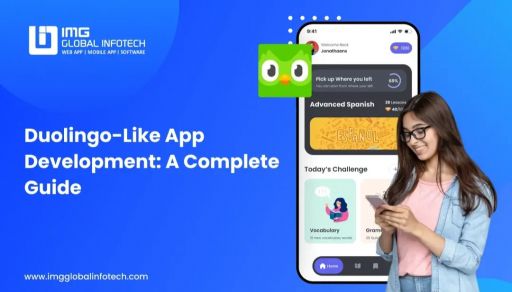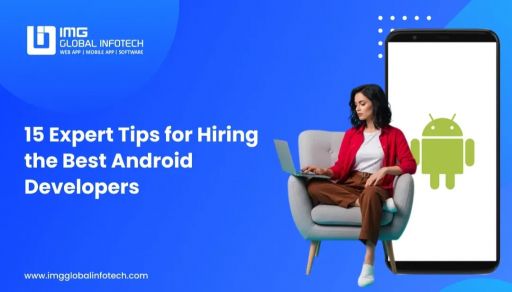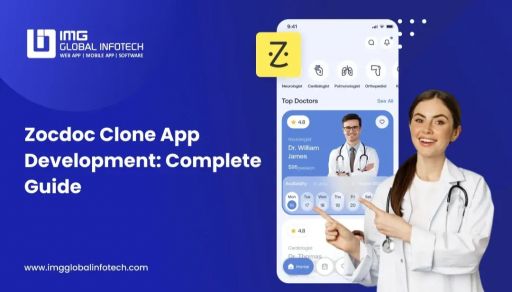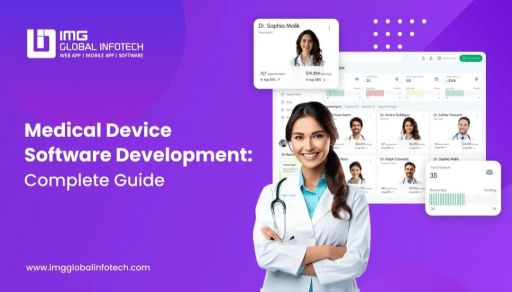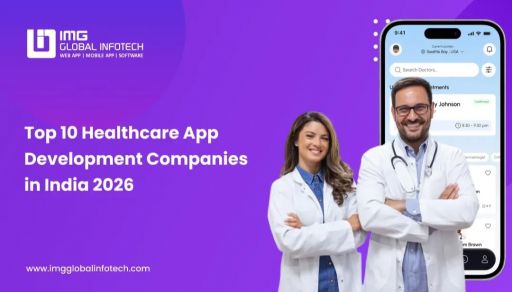Top Android App Development Trends 2026
Dipti Singhal
Jul 17, 2025

Android continues to dominate the global mobile operating system market, powering billions of devices across smartphones, tablets, TVs, wearables, and even automotive systems. As user expectations rise and technology advances at a rapid pace, Android app development is undergoing a major transformation, one that's defined by innovation, intelligence, speed, and scalability.
In 2026 and beyond, developers, startups, and enterprises alike must stay ahead of the curve by embracing the latest trends shaping the Android app development ecosystem. From AI-driven personalization to 5G-enhanced performance, and from Kotlin’s growing influence to the rise of IoT, today’s Android apps are more powerful, intuitive, and future-ready than ever.
This blog explores the top Android app development trends that are not only redefining how apps are built but also revolutionizing user experiences across industries. Whether you're planning to build a new Android app or looking to upgrade your existing one, these latest trends will guide your android app development strategy for success in the years to come.
Android App Development Market Insights
The Android ecosystem has become the foundation of the global mobile app development market. With over 3 billion active Android devices worldwide and more than 70% market share in the mobile OS segment, Android continues to outpace its competitors in terms of reach, flexibility, and developer adoption.
According to Statista, the Google Play Store hosts over 3.5 million apps as of 2026, reflecting a steady rise in developer activity and user demand. From eCommerce app and healthcare app to fintech and on-demand services, Android apps have penetrated nearly every industry, driven by their open-source nature, customizable interface, and extensive device compatibility.
Key Market Latest Trends In Android App Development Include:
-
Emerging Markets Are Driving Growth: Countries like India, Brazil, and Southeast Asian nations are contributing significantly to Android’s global expansion, fueled by affordable smartphones and increased internet accessibility.
-
Enterprise Demand Is Rising: Businesses are investing more in enterprise mobility solutions using Android, especially for field operations, logistics, employee engagement, and customer experience platforms.
-
Revenue Growth on Google Play: While historically Apple led in app revenue, Google Play is closing the gap, with in-app purchases, subscriptions, and ads generating billions in annual revenue.
-
Cross-Device Ecosystem: Android isn’t just about smartphones anymore. Its integration across smart TVs, wearables (Wear OS), in-car systems (Android Auto), and even foldable devices offers android app developers new platforms to innovate and monetize.
-
Developer Community Strength: With a massive global developer base and robust support from Google, Android remains a top choice for startups and enterprises looking for scalable, future-proof mobile solutions.
>>>Also Read: Kotlin vs Java: Which is Better for Android Development?
Top Android App Development Trends in 2026
1. AI & ML Integration for Smarter Apps
Artificial Intelligence (AI) and Machine Learning (ML) are no longer futuristic features, they are essential components of modern Android apps. Developers are integrating AI for tasks like voice recognition, predictive analytics, chatbots, recommendation systems, and behavior tracking.
For example, eCommerce apps use ML algorithms to show personalized product recommendations, while fitness apps utilize AI to track progress and suggest personalized workout plans. Google's ML Kit and TensorFlow Lite make it easier to implement these features natively in Android apps.
2. Rise of 5G and Its Impact on Android App Performance
The widespread rollout of 5G networks is transforming how Android apps perform and interact with users. With speeds up to 100x faster than 4G, 5G enables seamless streaming, real-time gaming, ultra-fast downloads, and more responsive cloud-based apps.
Developers are now creating high-performance apps that leverage this connectivity to deliver immersive experiences in AR/VR, real-time video chats, and smart device integration, without latency issues.
3. Kotlin Multiplatform Development
Kotlin continues to gain traction as the preferred language for Android development, and its Multiplatform capabilities are opening new doors. With Kotlin Multiplatform, developers can share business logic across Android, iOS, desktop, and web apps reducing mobile app development time and cost.
This trend is especially beneficial for startups and agencies looking to build cross-platform apps while retaining native performance and flexibility.
4. Android Jetpack and Modular Architecture
Android Jetpack is a suite of tools, libraries, and architectural guidance provided by Google. Developers are adopting Jetpack components like Navigation, LiveData, ViewModel, and WorkManager to build maintainable, high-quality apps faster.
Additionally, modular app architecture is gaining popularity as it enables better testing, faster builds, and easier code maintenance especially in large-scale enterprise apps.
5. Integration of IoT with Android Apps
With the Internet of Things (IoT) revolutionizing smart living and working, Android has become a key platform for managing and controlling IoT devices. From smart home apps to industrial monitoring systems, developers are using Android to build interfaces that communicate with IoT hardware via Wi-Fi, Bluetooth, and NFC.
Android Things and Google’s Home APIs are facilitating the integration of smart functionalities into apps like home automation, health monitoring, and wearable syncing.
6. Instant Apps and Android App Bundles
Google’s Instant Apps allow users to try out apps without installing them fully, helping reduce friction in app discovery and engagement. Meanwhile, Android App Bundles make APKs more compact, ensuring faster downloads and less storage usage.
These trends enhance user experience, especially in regions with limited connectivity or device storage.
7. AR & VR Advancements with Android (ARCore)
Android apps are embracing Augmented Reality (AR) and Virtual Reality (VR) to deliver next-gen immersive experiences. From interactive retail apps to AR-based learning and gaming platforms, the potential is enormous.
Google’s ARCore enables developers to add AR features like object detection, motion tracking, and environmental understanding, paving the way for innovations in eCommerce, entertainment, education, and beyond.
8. App Security and Data Privacy
Mobile app security best practices are now a top priority in Android development. With increasing regulations like GDPR, HIPAA, and Google Play’s Data Safety requirements, developers are adopting secure coding practices, encryption, biometric authentication, and permission controls.
Users are more privacy-conscious than ever, and apps that demonstrate strong data protection and transparency are more likely to gain trust and traction.
9. Voice Technology and Conversational Interfaces
Voice commands and conversational interfaces are redefining app interactions. With tools like Google Assistant, Dialogflow, and Voice Actions API, mobile app developers can integrate voice-based search, navigation, and control into apps.
This latest trend in android app development is especially useful in hands-free environments such as driving (via Android Auto), smart homes, or for visually impaired users.
10. Sustainable and Green App Development
Sustainability is emerging as a new trend in tech. Remote software developers for hire are now building "green apps", those that consume less energy, optimize background processes, and minimize resource usage.
Google has introduced tools like Battery Historian and Android Vitals to help identify performance bottlenecks and reduce battery drain contributing to energy-efficient apps that are better for users and the planet.
11. Blockchain Integration in Android Apps
Blockchain is no longer limited to crypto. Android app development trends are integrating blockchain for secure identity management, supply chain transparency, smart contracts, and secure payment systems.
Using frameworks like Web3j, Ethereum SDK, and wallet APIs, blockchain apps on Android are finding use cases in finance, real estate, healthcare, and logistics.
12. Low-Code and No-Code Development Platforms
Low-code and no-code tools like FlutterFlow, Kodular, and AppGyver are enabling non-developers and product teams to quickly prototype or launch functional Android apps with minimal coding.
These android app development trends are empowering small businesses and non-tech entrepreneurs to enter the mobile space faster and with reduced costs.
13. Predictive Analytics and Behavior-Driven UI
Apps that adapt to user behavior are gaining popularity. Through predictive analytics, Android apps can anticipate user needs and tailor the interface accordingly for example, suggesting frequently used actions or optimizing navigation flow.
By analyzing usage patterns, developers can design intuitive interfaces that improve retention and user satisfaction over time.
Why Choose Android App Development for Your Business?
In today's mobile-first world, having a strong digital presence is no longer optional, it’s essential. When it comes to building a mobile app for your business, Android app development stands out as a strategic choice for several compelling reasons. Whether you're a startup aiming to disrupt your market or an established enterprise looking to expand digitally, Android offers unmatched flexibility, reach, and value.
Here’s why Android app development integration trends is the right investment for your business:
1. Wider Market Reach
Android dominates the global smartphone market with over 70% market share. From North America to Asia and Africa, Android powers billions of devices, ensuring that your app can reach a massive and diverse audience worldwide.
2. Open-Source and Cost-Effective
Android is built on an open-source framework, which means developers have access to a wide range of tools and libraries at no licensing cost. This reduces mobile app development cost and offers more flexibility for customization.
3. Highly Customizable and Scalable
Android allows complete control over the app’s UI/UX, features, and backend systems. Whether you need to build a basic MVP or a feature-rich enterprise app, Android provides the freedom to tailor your app based on business goals.
4. Faster Time-to-Market with Play Store Publishing
Google Play Store’s publishing process is faster and more developer-friendly compared to iOS. This allows businesses to launch apps quickly, roll out updates more frequently, and respond to user feedback in real time.
5. Seamless Integration with Google Ecosystem
Android apps can easily integrate with powerful Google services like Maps, Firebase, Google Pay, Assistant, and Drive, giving businesses the tools to offer location-based services, real-time analytics, seamless payments, and more.
6. Strong Developer Community and Tools
Android has a large, active global developer community, backed by Google. With tools like Android Studio, Jetpack, Kotlin, and rich documentation, building and maintaining high-quality Android apps is faster and more efficient.
7. Multiple Device and Platform Support
Android runs on a wide range of devices like phones, tablets, smartwatches (Wear OS), TVs, and even automotive systems. This allows businesses to build cross-device experiences and cater to users on multiple touchpoints.
8. Easy App Monetization
With Android, you can monetize your app in various ways,through in-app purchases, subscriptions, ads, or freemium models. Google Play's support for multiple currencies and regions also makes it easy to generate global revenue.
9. Continuous Innovation
Android stays ahead of the curve with regular updates and support for emerging technologies like 5G, foldable devices, AR/VR, AI development, and blockchain. By choosing Android, your business stays future-ready and competitive.
Conclusion
The Android app development trend landscape is evolving rapidly, shaped by innovations in AI, 5G, AR/VR, and user-first design practices. For businesses, tech startups, and digital agencies, embracing these trends isn’t just about staying current it’s about staying competitive in a mobile-driven world.
By choosing Android, you're investing in a platform that offers massive reach, continuous innovation, and flexible development options. Whether you're launching your first app or scaling an existing one, aligning your strategy with these emerging trends will ensure long-term success, improved user experience, and higher ROI.
-
 How to Build a Jewelry E-commerce Website Like CaratLane?
How to Build a Jewelry E-commerce Website Like CaratLane?
-
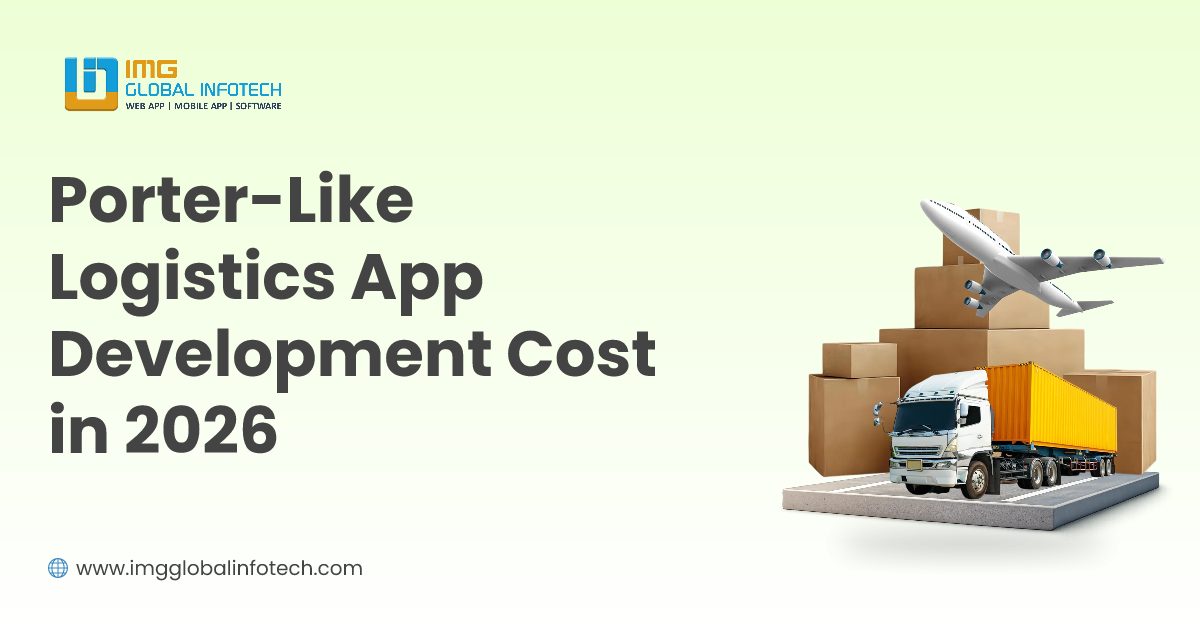 Porter-Like Logistics App Development Cost in 2026
Porter-Like Logistics App Development Cost in 2026
-
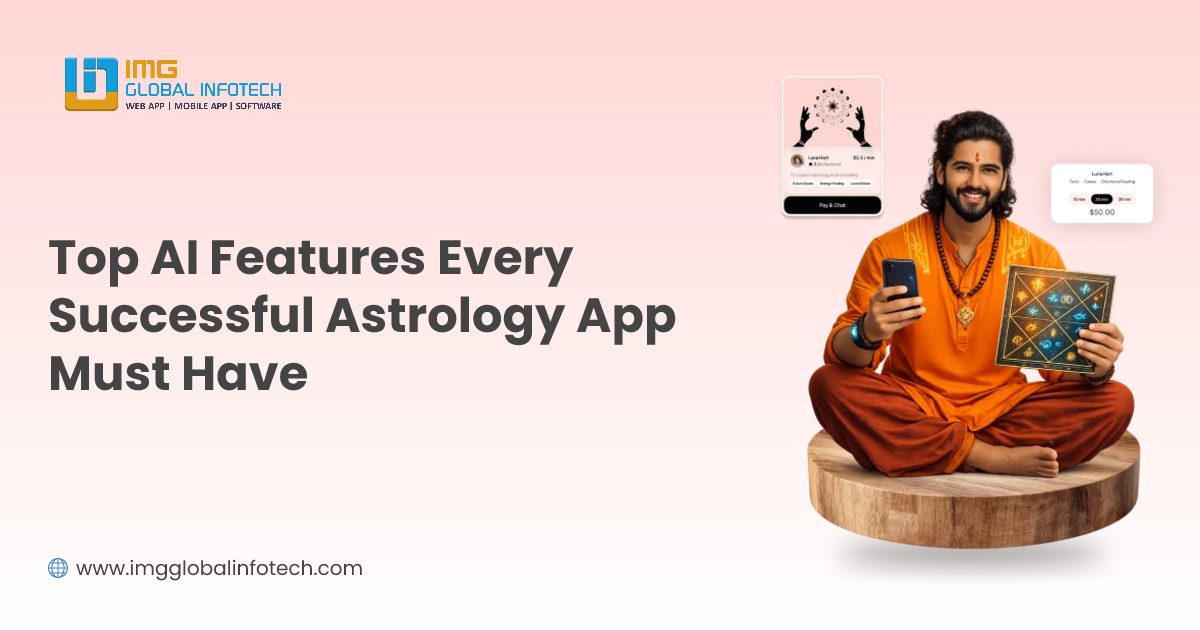 Top AI Features Every Successful Astrology App Must Have
Top AI Features Every Successful Astrology App Must Have
-
 What Are the Top Ecommerce Development Trends to Watch in 2026?
What Are the Top Ecommerce Development Trends to Watch in 2026?
-
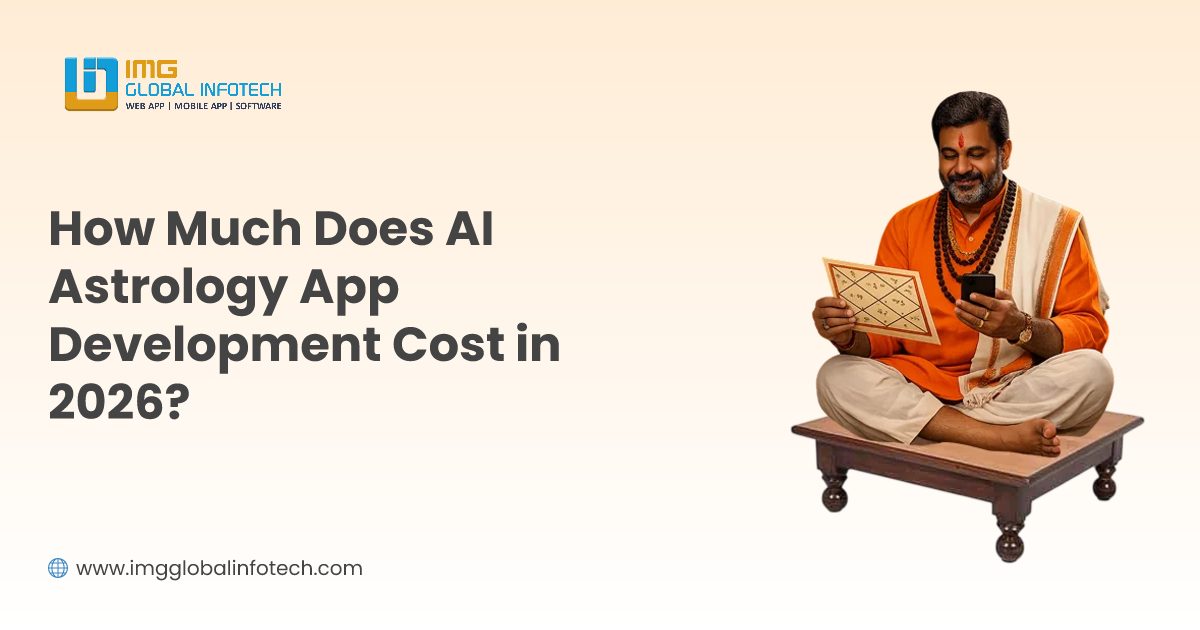 How Much Does AI Astrology App Development Cost in 2026?
How Much Does AI Astrology App Development Cost in 2026?
-
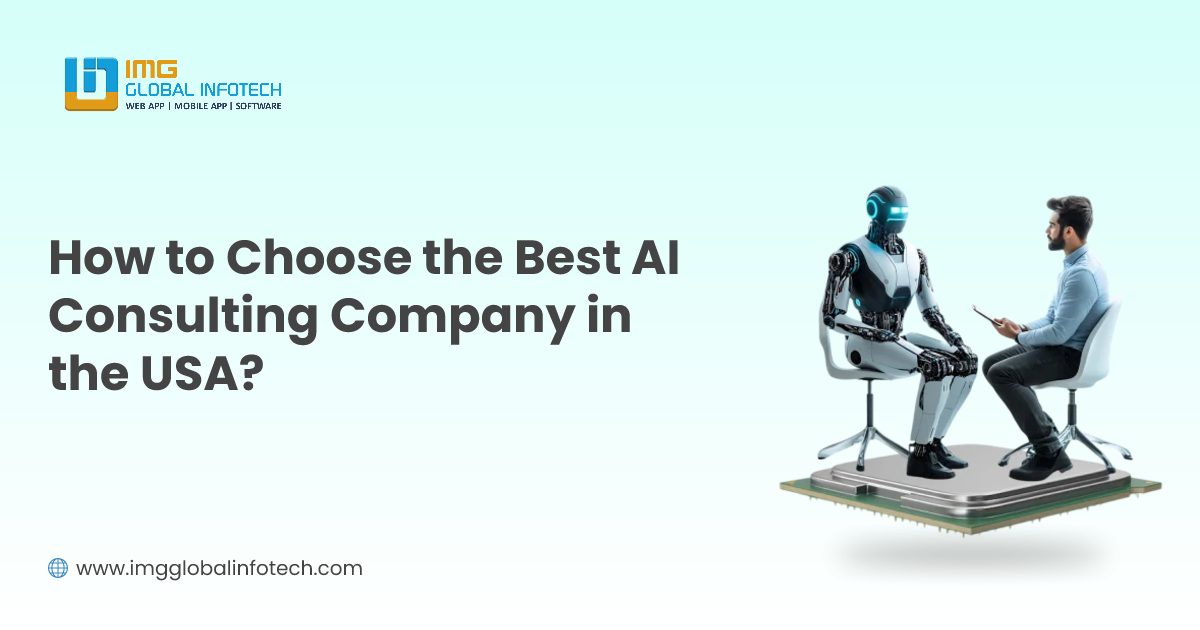 How to Choose the Right AI Consulting Company in the USA?
How to Choose the Right AI Consulting Company in the USA?
Dipti Singhal is a skilled Content Writing Specialist at IMG Global Infotech, with strong expertise in creating engaging, SEO-optimized content for various industries. She focuses on blending storytelling with effective keyword strategies to help businesses connect with their audience and improve their online visibility. Passionate about delivering high-quality content that drives real results, Dipti plays an essential role in strengthening the company’s digital presence.


